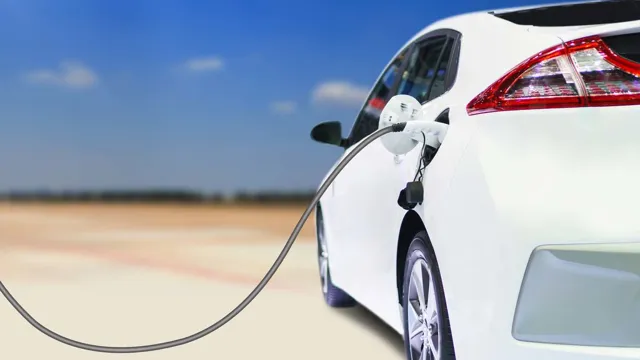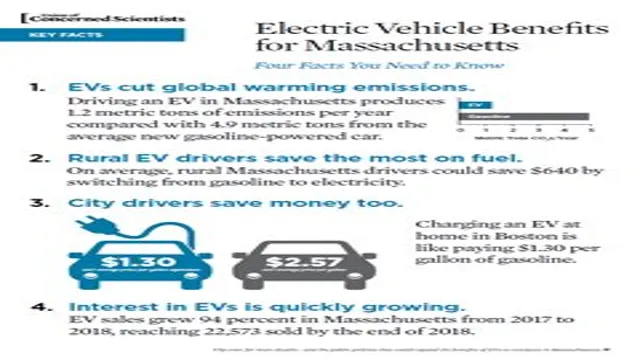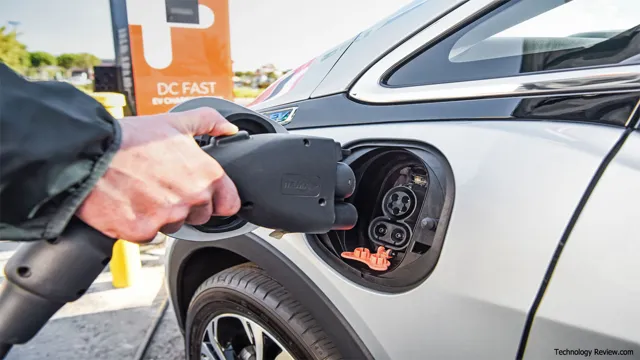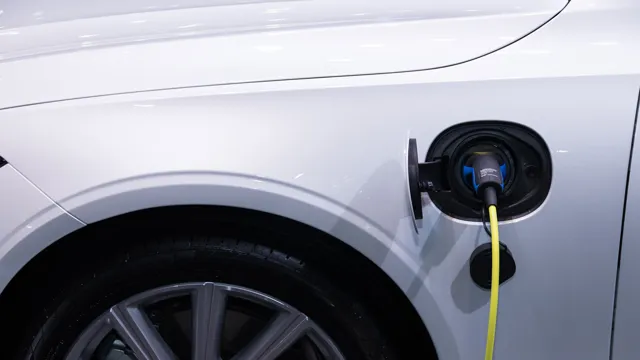Eco-Friendly Technology: Exploring the Environmental Benefits of Electric Cars
Electric cars are becoming increasingly popular, and it’s no surprise why. Apart from their sleek designs and impressive performance, these vehicles are known for being environmentally friendly. Thanks to the advancements in technology, electric cars are powered by electricity and produce zero emissions, making them a great alternative to traditional gasoline-fueled cars.
But, how exactly do electric cars benefit the environment, and what makes them a better choice for the planet? Let’s dive in to explore the many advantages of electric vehicles and how they are transforming the automotive industry.
Reduced Emissions
Electric cars are becoming increasingly popular due to their various benefits, especially for the environment. One of the main ways in which electric cars benefit the environment is by reducing emissions. Traditional gasoline-fueled cars emit carbon dioxide, nitrogen oxides, and other harmful pollutants into the atmosphere, contributing to global warming and air pollution.
Electric cars, on the other hand, are powered by electricity and produce zero emissions while driving. Although emissions are still generated during the production of electricity, electric cars emit significantly less greenhouse gases than their gas-fueled counterparts. By driving electric cars, we can reduce our carbon footprint and contribute to a cleaner, healthier environment.
With the increasing availability of charging stations and advancements in technology, electric cars are becoming a more practical and accessible option for reducing emissions and benefiting the environment.
Electric cars produce zero emissions during use.
Electric cars are considered one of the greatest advancements in modern technology, and one of their most significant benefits is their ability to produce zero emissions during use. This is possible due to the use of rechargeable batteries in electric vehicles, which are more environmentally friendly compared to their gasoline counterparts. By using electric cars, individuals and organizations can significantly reduce their carbon footprint, leading to a cleaner and healthier environment.
The transportation industry is one of the primary contributors to air pollution, and using electric cars represents a major step towards reducing emissions and protecting the earth’s atmosphere. The electric car market is expanding rapidly, with more models becoming available at affordable prices, and with improved battery technology, they are becoming even more practical for everyday use. If you are in the market for a new car, why not consider making the switch to a zero-emission electric vehicle? Not only will you be doing your part for the environment, but the advancements in technology mean you won’t have to compromise on performance either.

According to a study, electric cars emit 50% less CO2 compared to gasoline cars.
Reduced Emissions Electric cars have been one of the most promising technological advances in recent years. As we seek ways to minimize our carbon footprint, it is good news to know that electric cars emit 50% less CO2 compared to gasoline cars. A study conducted by the International Council on Clean Transportation has shown that electric cars can save up to 70% of CO2 emissions when compared to traditional gasoline cars.
This is a significant reduction, and it can only benefit the environment and our health in the long run. The reason for this difference is that electric cars produce zero emissions through their tailpipes. They rely on electric motors powered by batteries, which get their energy from the grid that uses mostly renewable sources.
On the other hand, gasoline-powered cars rely on burning fossil fuels that produce harmful gases such as carbon monoxide, particulate matter and nitrogen oxides. These emissions contribute to air pollution and can affect human’s respiratory system, cause asthma, heart attacks, and stroke. Moreover, electric cars use regenerative braking systems that convert the vehicle’s kinetic energy into electricity, thereby reducing the need for frequent battery charging.
Despite the upfront cost of purchasing an electric car, its low operating cost and its long-term environmental benefits are worth considering. If you are looking to reduce your carbon footprint and want to switch to a greener alternative, driving an electric car might be one of the best choices you can make. Together, we can create a healthier and more sustainable tomorrow.
Reduced Pollution
When it comes to protecting the environment, one of the most significant benefits of electric cars is the reduced pollution they generate. Unlike traditional gasoline-powered cars, electric cars don’t emit harmful pollutants like carbon monoxide, nitrogen oxides, particulate matter, and other harmful chemicals. This not only benefits the air we breathe but also reduces the overall carbon footprint of the vehicle.
Even when the electricity used to power an electric car comes from coal-fired power plants, it still produces less greenhouse gas emissions compared to traditional cars. Overall, electric cars play a crucial role in helping reduce pollution and while they may not completely eliminate it, they’re certainly a step in the right direction.
Electric cars produce less air and noise pollution.
Electric cars are widely regarded as more environmentally friendly than traditional gas-powered vehicles. One crucial reason for this is their ability to produce significantly lower levels of air and noise pollution. Electric cars are powered by rechargeable batteries that do not emit any toxic fumes, unlike traditional gasoline engines that release harmful chemicals like carbon dioxide, nitrogen oxide, and particulate matter, which contribute to air pollution and smog.
Additionally, electric cars operate quietly, making them much quieter than their gas-powered counterparts. This is because they do not have a typical internal combustion engine, which produces noise from thousands of small explosions every minute. The reduction of both air and noise pollution has a significant impact on public health, as it decreases the risk of respiratory diseases and noise-related illnesses like hypertension and hearing loss.
Overall, switching to electric cars can positively impact the environment and public health by significantly reducing pollution levels.
They also reduce fossil fuel dependence which can otherwise lead to oil spills.
Reduced Pollution Renewable energy sources like wind, solar, hydro, and geothermal power have a significant positive impact on reducing air, water, and land pollution. These sources of energy do not produce harmful emissions like traditional methods of energy production, such as burning fossil fuels. The use of renewable energy technologies in place of traditional methods reduces reliance on fossil fuels, which can lead to oil spills and other forms of environmental degradation.
By reducing the amount of pollution generated by human activity, we can help protect the planet and ensure a more sustainable future for generations to come. Investing in renewable energy not only benefits the environment but can also improve public health and reduce healthcare costs associated with illnesses related to pollution. Moreover, using renewable energy sources like solar panels and wind turbines provide an additional benefit of energy cost stability, which means less fluctuation in energy prices in the long run.
Choosing renewable energy is an excellent way to reduce pollution and save money while helping to protect our planet.
Renewable Energy Compatibility
When it comes to environmental benefits, electric cars are a game-changer. One of the biggest advantages of electric cars is their compatibility with renewable energy sources, such as wind and solar power. Unlike traditional gasoline-powered cars, electric cars don’t emit harmful pollutants into the environment.
This means that when charged using renewable energy sources, they can significantly reduce carbon emissions and greenhouse gas emissions. Additionally, electric cars can help reduce our dependence on fossil fuels, which are a finite and nonrenewable resource. By opting for an electric car, you can not only reduce your carbon footprint but also contribute towards a cleaner and more sustainable future.
So, if you’re looking to make a positive impact on the environment while saving money and enjoying a smooth and reliable ride, now is the perfect time to consider making the switch to an electric car.
Electric cars can be fueled by renewable energy sources such as wind and solar power.
The compatibility of electric cars with renewable energy sources like solar and wind power is a significant advantage over traditional fossil-fuel cars. With renewable energy, it’s possible to create a cleaner, greener future while reducing our carbon footprint. Not only are electric cars becoming more popular, but so is the use of renewable energy sources.
By using solar panels and wind turbines to create electricity, we can significantly reduce our dependence on fossil fuels that emit harmful greenhouse gases. Renewable energy is also a more cost-effective way of powering electric cars in the long run. Moreover, electric cars can be used as a storage battery for renewable energy sources, which will be particularly useful to balance the grid supply and reduce peak demand.
This compatibility between electric cars and renewable energy sources opens a gateway to a sustainable, cleaner future without compromising the convenience and reliability of automotive transportation.
This further reduces their environmental impact.
Renewable energy compatibility is an essential factor that industries should consider while establishing an environment-friendly operation. Implementing sustainable energy sources not only reduces the carbon footprint but also saves money in the long run. Using renewable energy sources such as solar, wind, or hydroelectric power plant requires upfront investment, however, after installation, they provide a consistent and cost-efficient way to generate power.
Companies use renewable energy to reduce their reliance on grid power and instead power their facilities with renewable energy. This compatibility with renewable energy further reduces their environmental impact. By investing in renewable energy, businesses can achieve their sustainability goals and, at the same time, lower their operational costs in the long term.
It’s a win-win situation for both the environment and businesses, what are you waiting for?
Cost Effective & Sustainable
Electric cars have become an increasingly popular choice for eco-conscious individuals who want to minimize their environmental impact and save on fuel costs. In fact, electric cars are a great option for those looking to reduce their carbon footprint, as they emit significantly fewer greenhouse gases than traditional gas-powered cars. Additionally, electric cars are cost-effective and sustainable in the long run, as they require less maintenance and have lower fuel costs.
Investing in an electric car can also help to reduce our dependence on fossil fuels, which is not only better for the environment but also essential for ensuring a sustainable future. So, if you’re looking to do your part in reducing your impact on the environment while also saving money in the process, switching to an electric car is definitely worth considering.
Electric cars can save money in the long run.
Electric cars can certainly save a lot of money in the long run. Although the initial cost may be high, electric cars have much lower operating costs over time. Owners can save significantly on fuel costs as electric cars don’t require expensive gas or diesel.
They are also cheaper to maintain because they have fewer moving parts compared to traditional cars. Moreover, electric cars are very environmentally friendly. They produce no tailpipe emissions, helping to reduce pollution.
In addition, many governments offer incentives and tax credits for buying electric cars in order to encourage their use, making them even more cost-effective. Even though the upfront cost of electric cars may deter some people, they are a wise investment in the long term.
Sustainable manufacturing and recycling practices can further reduce their environmental impact.
Sustainable manufacturing and recycling practices can greatly reduce the environmental impact of our products while remaining cost-effective. By implementing sustainable practices, companies can reduce their carbon footprint, decrease waste, and save resources. For example, using renewable energy sources like wind or solar power can reduce energy costs and decrease pollution.
Similarly, recycling waste can also help conserve resources and reduce pollution. Many companies are already implementing sustainable manufacturing and recycling practices, and their efforts are paying off in both environmental and financial benefits. With the rise in consumer demand for eco-friendly products, sustainable manufacturing is becoming a necessity for companies to remain competitive in the market.
By making sustainable and cost-effective choices, companies can reduce their impact on the environment while also saving money in the long run. So, let’s support companies that prioritize sustainability in their manufacturing processes and help build a healthier planet for us all.
Conclusion
In conclusion, switching to electric cars is a green revolution that’s essential for our environment’s well-being. By cutting down on harmful emissions and reducing our carbon footprint, electric cars help us shift towards a cleaner, healthier, and more sustainable future. They may not come with the roar of traditional engines, but their eco-friendly drive is a thunderous testament to our responsibility as global citizens.
So let’s plug in, charge up, and drive towards a brighter tomorrow!”
FAQs
What are some of the environmental benefits of using electric cars?
Electric cars produce no emissions, which greatly reduces the amount of pollution released into the air. They also have higher energy efficiency and use renewable sources of energy, helping to reduce greenhouse gas emissions.
How do electric cars help in reducing air pollution?
Electric cars produce no tailpipe emissions, which significantly reduces the amount of harmful pollutants released into the air. This leads to improved air quality and reduces the negative health effects associated with air pollution.
What impact do electric cars have on our dependence on fossil fuels?
Electric cars rely on electricity as a fuel source, often generated by renewable sources like wind and solar power. This reduces our dependence on fossil fuels, which are finite and contribute to climate change.
What are some of the economic benefits of electric cars?
Electric cars can save drivers money in the long run, as they require less maintenance and electricity is often cheaper than gasoline. It can also create new jobs in the renewable energy sector.




